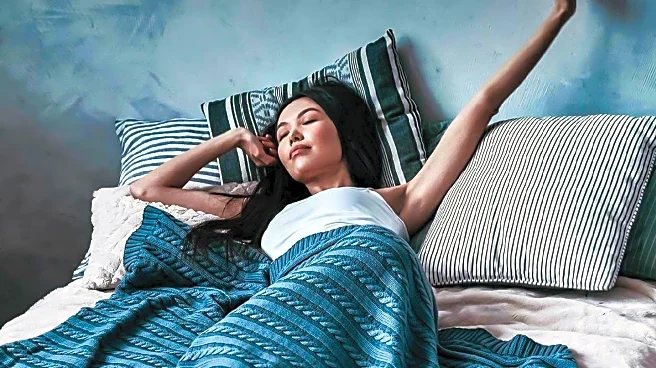What's Happening?
A sleep researcher from Royal Holloway University of London has identified five common habits that may exacerbate insomnia. Contrary to traditional advice, the researcher suggests that going to bed earlier or staying in bed longer can weaken the mental association between bed and sleep, leading to frustration. Instead, maintaining a consistent wake-up time and going to bed later can strengthen the body's natural sleep pressure. The researcher also advises against completely banning screens before bed, recommending instead the use of calming content and 'night mode' options. Additionally, the obsession with optimizing sleep through apps and devices may contribute to insomnia, as it creates unrealistic expectations about sleep quality.
Why It's Important?
This new perspective on insomnia management challenges conventional wisdom and highlights the complexity of sleep disorders. With nearly 70 million Americans affected by sleep disorders, understanding the nuanced factors that contribute to insomnia is crucial. The advice to use technology strategically and focus on flexibility rather than rigid sleep schedules could lead to more effective management of sleep issues. This approach may also reduce the anxiety associated with sleep optimization, which can paradoxically worsen sleep quality. The findings emphasize the importance of personalized sleep strategies that consider individual responses to lifestyle changes.
Beyond the Headlines
The insights from this research could influence public health recommendations and lead to a shift in how sleep disorders are addressed. By focusing on flexibility and individual needs, healthcare providers may develop more tailored interventions for insomnia. The research also raises questions about the role of technology in health management, suggesting a need for balance between digital tools and natural sleep processes. As society becomes increasingly reliant on technology, understanding its impact on health behaviors will be essential for promoting overall well-being.









